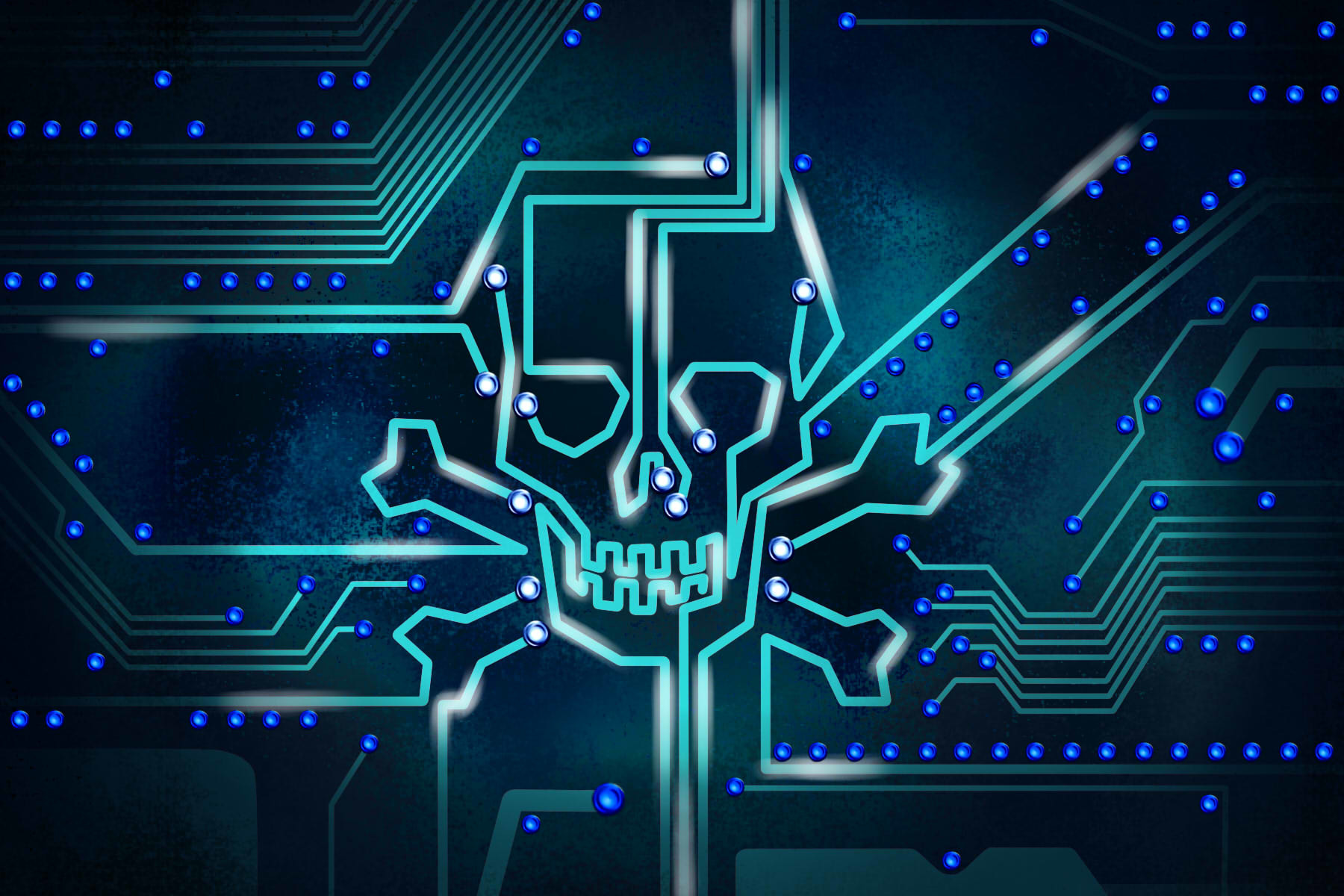
We now live in an age where information is key to the structures in our lives. For many of the older generational cohorts, this shift in information gathering and delivery may seem like a whirlwind of technological and communication growth. For those in the newer generational cohorts starting from Generation Y (Millennials), this era of information is part of their early developmental years and may seem less alien to them. Individuals born in the early 2010s in the newest generational cohort (Gen Alpha) have never known a world without the influence of social media, instant worldwide communication technology, and intellectual property.
Property, to most, is the idea of owning something that can be grasped physically and that can be seen or experienced. The value of it has drastically changed in recent years and now the most valuable forms of property are that of ideas and information born from intellect. Why is this the case? Why do many large corporations invest so much capital into their R&D departments to develop new ideas so they can patent and essentially own the rights to those ideas? Why, in this age of expanding information and technologies, are governments and corporations spending so many resources on cyber security and databasing? The simple answer is because of profits and the system that is in place to allow profitability over the commodification of information. Who then are the individuals trying to steal this information? Pirates. More specifically, individuals who engage in information piracy as dictated by those same corporations that have found ways to use the legal system to privatize information for profit.
This tale is about one of the most infamous pirates of his time. His plundering expeditions into the seas of corporate and government information privacy have shaken the foundations of how we look at computer fraud and American civil liberties. Aaron Swartz, in a nutshell, was a computer programmer, entrepreneur, writer, political organizer, and hacktivist. Being an accomplished programmer led him from an early age to take part in important entrepreneurial projects as well as social and political reform groups. His work and interests lead him down the path of information, how it is used and shared. At the age of 13 years old he created a website called The info.org which was essentially his start into the domain of free information. Users could post information that they wanted to share as well as edit existing information. It was Wikipedia before Wikipedia was invented. Swartz also helped materialize Lawrence Lessig’s vision of Creative Commons. This project envisioned creators and artists to determine the freedoms of their own works instead of forfeiting all rights to publishing companies. In theory this would allow others legal access to build off of their works without fear of lawsuits. Later on, Swartz co-founded Reddit which has become one of the biggest platforms for decentralized sharing of information and ideas (a many to many system). Swartz became deeply interested in copyright law at a young age. He truly believed in the potential of the internet ability to share information for the process of learning and did not believe in the education system that he was placed in. From an interview for SpunOut.ie in 2010:
“I started reading books about the history of education and how this education system was developed and alternatives to it and ways that people could actually learn things as opposed to regurgitating facts that teachers told them. That led me down this path of questioning things. Once I questioned the school I was in, I questioned the society that built the school, I questioned the businesses that the schools were training people for, and I questioned the government that set up this whole structure.”
Swartz was curious about the evolution of how we taught ourselves to learn. Not institutional learning which he viewed as a sham, but true learning and the spread of knowledge. He wanted to provide anyone with the means to connect to the internet to have all of the resources that someone at a university level educational system might have access to.
Swartz thought that if he could educate people about the system that restricted their freedoms, there would be a greater emphasis to reform the systems in place that he thought were exploitative and unjustly controlling. One of these systems that he had targeted was in the publishing sector which makes up a multi-billion dollar industry in copyrighted academic journals and scholarly articles. The specific publisher that he went after was JStor. While Swartz was doing his fellowship at Harvard University, he struggled with the idea that these publishing companies had monetized the entire landscape of human knowledge. To access this knowledge that spans back to the enlightenment period, one would have to pay ridiculous sums of money. It was so much money in fact that an overwhelming majority of individuals would not be able to afford the bill of renting a few scholarly works. Swartz’s solution to this problem was to go to the neighboring school, the Massachusetts Institute of Technology, and start downloading as many files as he could from the school’s JStor linked library. Suffice to say, he was caught.
Now one might think… so what? He downloaded some files. The most anyone could reasonably do is fine him and give him a slap on the wrist, right? This couldn’t be any further from the reality of the situation. Swartz was already on the FBI watchlist for a previous controversy regarding the freeing of public court documents from the PACER system. To add more background, this was an unprecedented time in history following massive political and social protests. More nefarious groups like Anonymous were coming into the spotlight and the “hacker” was seen as a certain type of person who exploited governments and corporations for monetary benefit. The courts and more specifically the government task force that dealt with computer crime wanted to set a precedent for any type of behavior classified as computer crime. They offered him a plea deal, for which he would be considered a felon, or potentially 35 years in prison. To Swartz these options were unacceptable. He could not bear the thought of being labeled a felon and not be able to vote or take action in a political system that he wanted to reform. He would also be admitting to doing something wrong, which he wholeheartedly believed that he was doing the opposite. Here was a young man who’s only agenda was to free information back to the public and aid in their pursuit of knowledge. The prosecution was uncaring in this regard. They did not seek to find any justice in this case, but rather sought to make an example for reasons of “deterrence” and setting a precedent against future cyber crimes. The same administration who so steadfastly indicted Aaron Swartz was also the same administration who seemed to forget to make an example of the multi-billion dollar corporations who perpetrated the crimes towards millions of working Americans in the 2008 market crisis. Where was the deterrence there? Was it even actually ever about deterrence, or was it about swinging favor to the corporations that have the most money, and thus have the most favor in Congress?
During the time before his inevitable prosecution, Swartz took to social and political activism. He authored the Guerilla Open Access Manifesto, which was his way of communicating his thoughts on the flow of information on the internet: free of corporate greed and governmental restrictions. He sought to open the gate owned by private corporations, blocking the wealth of human culture and knowledge and release it back to the public. The effects of corporate lobbying and a corrupt governmental system was too much to handle. A bill started moving fast through congress and it became dubbed SOPA. The “Stop Online Piracy Act” is framed to protect creators and artists, but is that it’s true intention? Creators do not benefit from this act, they get their intellectual property taken away from them the moment they sign with a publishing company. What is all this fuss about copyright about anyway then? It inevitably comes down to a power struggle. The old titans of publishing, the RIAAs and MPAAs of the publishing world are trying to retain significance and influence. This act would essentially allow these corporations to take down whole websites with copyrighted content with a simple copyright claim. This meant an easier and more effective method for those corporations to shut down the free spread of knowledge through this new, exciting, much more capable system. A many-to-many instead of a one-to-many. A system which supported a competitive marketplace for ideas. A system where more information, more accessibility, and more debate about our government as well as those corporations with the greatest influence on our political system are had. Fortunately, due to Aaron Swartz and his work with Demand Progress, massive support against SOPA was garnered which forced the hands of many senators and led the bill to be overturned.
As for the protagonist of our tale, facing tremendous pressure from the case building on him, Aaron Swartz took his own life at the age of 26. Ask yourself this: Who are the real pirates in this situation, the individuals like Swartz who risk their livelihoods fighting for the freedom of information, or those corporations that seek to hoard information in the effort to maintain control and squeeze out more profits? Will we strive to see the internet flourish into a marvel of humankind? Or will we let it continue to shrivel and die out in this private theft of our collective culture.






